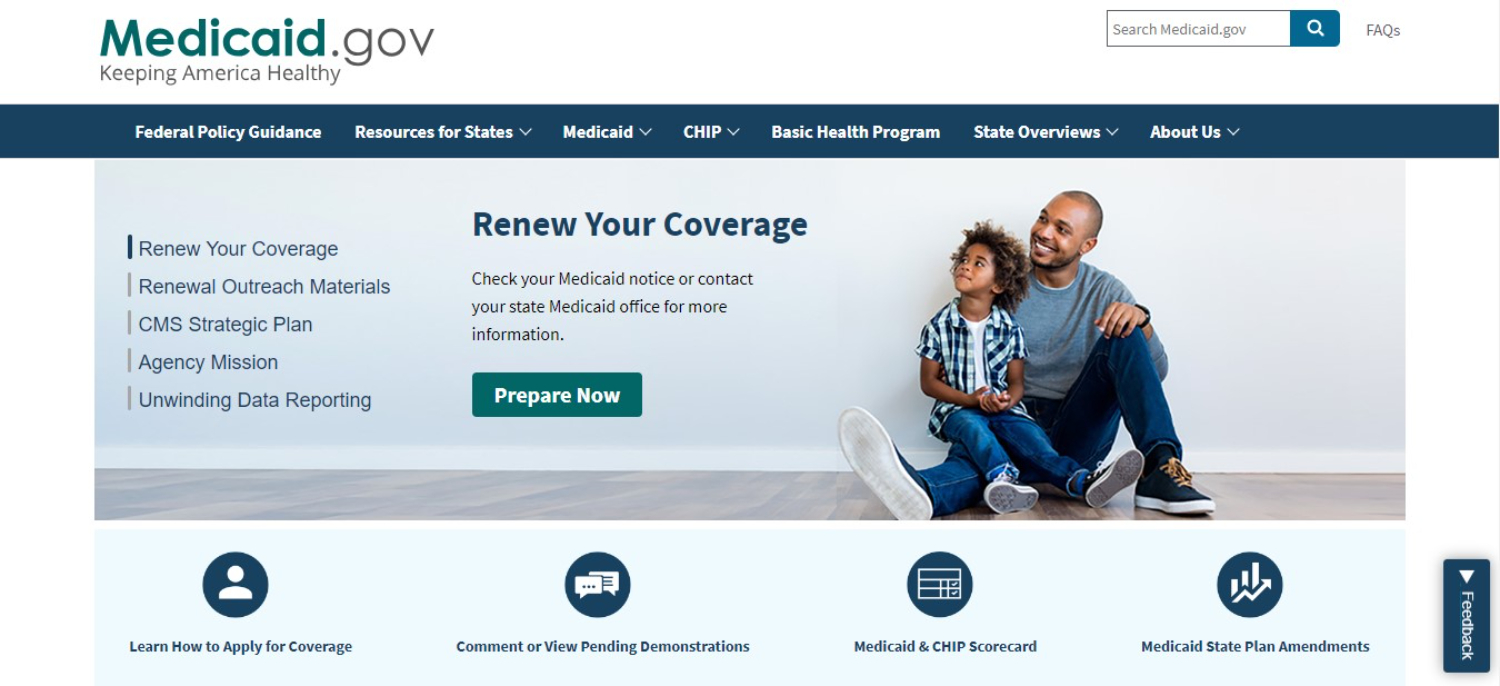- SurveyJunkie: Make $5-$25 in your free time. Just take online surveys, participate in Focus Groups and trying new products. Join SurveyJunkie Now!
The Medicaid Income Limit is a crucial factor in determining whether you meet the Medicaid requirements in your state. In this post, we’ll discuss the income limit for Medicaid in Florida.
Florida elders must be financially and medically qualified for Medicaid long-term care benefits. To qualify for Medicaid for nursing homes in Florida in 2024, a single person must make less than $2,742 per month and have assets under $2,000.
So, let’s learn more about the income limit for Medicaid in Florida.
Table of Contents
What is Medicaid?
Medicaid offers countless Americans, particularly families with kids, pregnant women, senior citizens, and those with handicaps, free or affordable health insurance.

Kids in households whose earnings are too high to be eligible for Medicaid but who cannot pay for personal insurance are provided health care under the Children’s Health Insurance Program (CHIP).
Visit: What is Medicaid?
Florida Medicaid Income Limits in 2024
The candidate’s gross monthly earnings must now be above $2,742 (up from $2,523) as of January 1, 2024. $130 can be kept back by the candidate each month for private expenditures.
The difficulty of an applicant with excessive income can be resolved by establishing a qualifying income-only trust. Also, permanent faith keeps the individual’s surplus income in a savings account without interest.

After that, the money is used to cover nursing home and other healthcare costs. The trustee shall be a person other than the candidate. Florida has the right to any remaining trust monies upon the nursing home patient’s death.
So, a certified income-only trust should only be established by an elder law expert.
Visit: Florida Medicaid income limits 2024
See also: Reducing Medical Expenses: 5 Best Ways To Do It.
Home Equity Limit
The home equity maximum raised from $636,000 to $688,000 as of January 1, 2024. So, Home equity is calculated using the home’s actual market value, less outstanding debt.
Medicaid considers the economic worth of the applicant’s fractional stake when a residence belongs to them, including joint ownership. The following circumstances may result in the waiver of the equity cap:
- The applicant for Medicaid’s spouse resides there.
- The residence is where the Medicaid applicant’s kid under 21 resides.
- The residence is occupied by the applicant for Medicaid’s blind or disabled kid, regardless of age.

Additionally, even if it seems implausible, the applicant must show they want to return to the house. Action must be taken to prepare the home for the applicant’s potential return.
It would be unwise to rent the house to somebody on a contract for an extended period, for instance, as this would indicate that the applicants aren’t planning to move back in.
Furthermore, accomplishing so would result in income, which may make it difficult for someone to qualify for Florida Medicaid eligibility. A common concern among those who enroll for Medicaid and their partners is that Medicaid may confiscate their houses after they die away.
Medicaid will not be able to obtain the home if:
- Upon the applicant’s demise, the property becomes their homeland property, and
- When the applicant dies away, the property will go to their legal constitutional successors, which include their partner, kids, grandkids, brothers, nieces, and nephews. Offering the house away in the five years before the application will be seen as a gift and will affect the applicant’s qualification.
The Income Limit for Medicaid in Florida
You must fulfill the Florida Medicaid Income Limits specified below to be eligible. The FPL for 2024 is shown below (monthly income).
| 2024 Federal Poverty Levels for the 48 Contiguous States & D.C. | |||
| Household Size | Poverty Guideline for 48 States & D.C. | Alaska | Hawaii |
| 1 | $1,215 | $1,518 | $1,398 |
| 2 | $1,643 | $2,053 | $1,890 |
| 3 | $2,072 | $2,589 | $2,383 |
| 4 | $2,500 | $3,125 | $2,875 |
| 5 | $2,928 | $3,661 | $3,368 |
| 6 | $3,357 | $4,197 | $3,860 |
| 7 | $3,785 | $4,733 | $4,353 |
| 8 | $4,213 | $5,268 | $4,845 |
In addition, you cannot earn more than the following income limits to be eligible for Medicaid:
- Infants and toddlers whose families make up 211 percent of the federal poverty level
- Any child aged 1 to 5 whose family makes up to 144 percent of the FPL
- CHIP for pregnant women and children with household incomes up to 196 percent of the FPL and up to 211 percent of the FPL, respectively
- Parents of minor children whose household income is up to 26% of the federal poverty level
- Older, blind, and disabled people whose household income is up to 88% of the national poverty level
See also: How Much Money Do Foster Parents Make?
Income Limit for Medicaid in Florida for Children.
The income limit for kids is broken out below each age group. The revenue limit by family size may be found by locating the age group that your child belongs to.
| Medicaid income limits Florida – Children | ||||||
| Children Medicaid Ages 0-1 | Children Medicaid Ages 1-5 | Medicaid Ages 6-18 | Children Separate CHIP | |||
| % FPL | 100% | 211% | 145% | 138% | 211% | |
| Household Size | 1 | $1,215 | $2,564 | $1,762 | $1,677 | $2,564 |
| 2 | $1,643 | $3,467 | $2,383 | $2,268 | $3,467 | |
| 3 | $2,072 | $4,371 | $3,004 | $2,859 | $4,371 | |
| 4 | $2,500 | $5,275 | $3,625 | $3,450 | $5,275 | |
| 5 | $2,928 | $6,179 | $4,246 | $4,041 | $6,179 | |
| 6 | $3,357 | $7,083 | $4,867 | $4,632 | $7,083 | |
| 7 | $3,785 | $7,986 | $5,488 | $5,223 | $7,986 | |
| 8 | $4,213 | $8,890 | $6,109 | $5,814 | $8,890 | |
Visit: Income Limit for Medicaid in Florida for Children.
Income Limit for Medicaid in Florida for Adults
The adult income cap is then broken down by category. The income limit by family size may be found by identifying your group. Medicaid has not been made available to people without relatives in Florida. Adults without families are, therefore, ineligible for Medicaid in Florida.
| Income limit for Medicaid in Florida – Adults | ||||||
| Pregnant Women Medicaid | Adults (Medicaid) Parent/ Caretaker | Seniors and people with/ Disabilities (Medicaid) | Adults (Medicaid) Expansion to Adults | |||
| % FPL | 100% | 196% | 26% | 88% | NO | |
| Household Size | 1 | $1,215 | $2,381 | $316 | $1,069 | N/A |
| 2 | $1,643 | $3,221 | $427 | $1,446 | N/A | |
| 3 | $2,072 | $4,060 | $539 | $1,823 | N/A | |
| 4 | $2,500 | $4,900 | $650 | $2,200 | N/A | |
| 5 | $2,928 | $5,740 | $761 | $2,577 | N/A | |
| 6 | $3,357 | $6,579 | $873 | $2,954 | N/A | |
| 7 | $3,785 | $7,419 | $984 | $3,331 | N/A | |
| 8 | $4,213 | $8,258 | $1,095 | $3,708 | N/A | |
FAQs
What is Florida KidCare?
The Florida State's medical coverage scheme for kids ages 0 to 18 is called Florida KidCare.
How can we enroll our child in health insurance?
To request a registration form be mailed, call us at 1-888-540-KIDS (5437) or submit the form online. Florida KidCare will enroll your kid in the scheme that best suits their requirements once you've been given the go-ahead.
What is the cost of Florida KidCare?
Most households don't pay anything, while some pay $15 or $20 monthly. For families with more significant living expenses, there is a full-pay alternative.
How can we alter our Medicaid coverage in Florida?
If your Medicaid application has been accepted in Florida, you have 120 days to change plans after enrolling. After the first 120 days, you can alter your plan throughout your open enrollment time or for a valid cause approved by the state.
What does Florida Medicaid's 'No Change period' entail?
The no-change period is between the conclusion of your original first 120 days of registration and your 60-day yearly registration period. Future 60-day free registration periods will also include the No-change period.
Conclusion
We hope this post about the income limit for Medicaid in Florida is helpful. Seniors must be assured they fulfill all Medicaid Florida eligibility standards before completing a Medicaid form for long-term care in Florida.
People who exceed the limit(s) on their income and assets may profit from Medicaid planning to increase their chances of being accepted into a Medicaid program.
